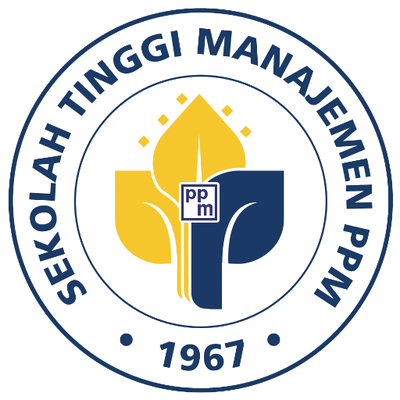Unveiling the Impact of Audience Involvement, Celebrity Worship, Brand Awareness, and Perceived Product Quality on Purchase and Visit Intentions
Abstract
Keywords
Full Text:
PDFReferences
wanita dewasa awal penggemar korean pop. Psikoborneo: Jurnal Ilmiah Psikologi, 9(4), 886. https://doi.org/10.30872/psikoborneo.v9i4.6826
Bae, J. H. (2022). Exploring the relationships among brand experience, perceived product quality, hedonic value, utilitarian value, and brand loyalty in unmanned coffee shops during the covid-19 pandemic. Sustainability (Switzerland), 14(18). https://doi.org/10.3390/su141811713
Bosnjak, M., Ajzen, I., & Schmidt, P. (2020). The theory of planned behavior: selected recent advances and applications. Europe’s Journal of Psychology, 16(3), 352–356. https://doi.org/10.5964/ejop.v16i3.3107
Çelik, Z. (2022). The moderating role of influencer attractiveness in the effect of brand love, brand trust, brand awareness and brand image on brand loyalty. İstanbul Ticaret Üniversitesi Sosyal Bilimler Dergisi, 148–167. https://doi.org/10.46928/iticusbe.1050122
Christine, K. Y. T., Kempa, S., & Vincēviča-Gaile, Z. (2020). Determinant factors in purchasing korean skin care products. SHS Web of Conferences, 76, 01021. https://doi.org/10.1051/shsconf/20207601021
CNN, I. (2022). Indonesia jadi negara dengan K-Poper terbesar di Twitter. Cnnindonesia.Com, 2. https://www.cnnindonesia.com/hiburan/20220126202028-227-751687/indonesia-jadi-negara-dengan-k-poper-terbesar-di-twitter
Danarti, T., Wahjono, S. I., & Salbiyah, S. (2021). Theory of planned behavior terhadap kinerja mahasiswa dengan mind mapping sebagai mediasi. BALANCE: Economic, Business, Management and Accounting Journal, 18(1), 71. https://doi.org/10.30651/blc.v18i1.7221
Emmanuella, D. C. (2020). Pengaruh celebrity worship terhadap attitude toward brand dan purchase intention; studi kasus endorsement boy group BTS Tokopedia di kalangan mahasiswi Universitas Kristen Petra Surabaya. Jurnal Strategi Pemasaran, 2013. https://publication.petra.ac.id/index.php/manajemen-pemasaran/article/view/11301
Fadilah, S. R. (2022). 5 negara ini tercatat miliki penggemar K-pop terbanyak di dunia, indonesia memimpin? Galamedianews.Com, April 2022. https://galamedia.pikiran-rakyat.com/hiburan/pr-354190730/5-negara-ini-tercatat-miliki-penggemar-k-pop-terbanyak-di-dunia-indonesia-
Foroudi, P. (2019). Influence of brand signature, brand awareness, brand attitude, brand reputation on hotel industry’s brand performance. In International Journal of Hospitality Management (Vol. 76). https://doi.org/10.1016/j.ijhm.2018.05.016
Hair, J. F., Hult, G. T. M., Ringle, C. M., & Sarstedt, M. (2017). A Primer on Partial Least Squares Structural Equation Modeling (PLS-SEM). Second Edition. In California: Sage.
Hair, Joe F., Howard, M. C., & Nitzl, C. (2020). Assessing measurement model quality in PLS-SEM using confirmatory composite analysis. Journal of Business Research, 109(August 2019), 101–110. https://doi.org/10.1016/j.jbusres.2019.11.069
Hair, Joseph F., Risher, J. J., Sarstedt, M., & Ringle, C. M. (2019). When to use and how to report the results of PLS-SEM. European Business Review, 31(1), 2–24. https://doi.org/10.1108/EBR-11-2018-0203
Halim, T M. (2021). Beauty and celebrity: Korean entertainment and its impacts on female Indonesian viewers’ consumption intentions. Sustainability (Switzerland), 13(3), 1–19. https://doi.org/10.3390/su13031405
Halim, T. M., & Kiatkawsin, K. (2021). Beauty and celebrity: Korean entertainment and its impacts on female Indonesian viewers’ consumption intentions. Sustainability, 13(3), 1405.
Ingels, L. (2020). The attraction of Korea. Axon, Capsule 4(Special Issue), 160–161. https://doi.org/10.2307/j.ctv177tk1m.58
Jeong, J. S., Lee, S. H., & Lee, S. G. (2017). When Indonesians routinely consume Korean pop culture: revisiting Jakartan fans of the Korean drama Dae Jang Geum. International Journal of Communication, 11, 2288–2307.
Kwong, K. & Wong, K. (2019). Mastering Partial Least Squares Structural Equation Modeling (PLS-SEM) with SmartPLS in 38 Hours. Iuniverse
Kim, S. (. (2018). Perceived values of TV drama, audience involvement, and behavioral intention in film tourism. Journal of Travel and Tourism Marketing, 35(3), 259–272. https://doi.org/10.1080/10548408.2016.1245172
Le, T. A., Mai, N. Q. T., Van Vo, N., Tram, N. T. H., & Le Nguyen, N. (2020). Factors affecting the choice of buying Korean cosmetics. Management Science Letters, 10(13), 3097–3106. https://doi.org/10.5267/j.msl.2020.5.013
Lee, Y. L., Jung, M., Nathan, R. J., & Chung, J. E. (2020). A cross-national study on the perception of the Korean wave and cultural hybridity in Indonesia and Malaysia using discourse on social media. Sustainability (Switzerland), 12(15). https://doi.org/10.3390/su12156072
Myrick, J. G. (2019). An experimental test of the roles of audience involvement and message frame in shaping public reactions to celebrity illness disclosures. Health Communication, 34(9), 1060–1068. https://doi.org/10.1080/10410236.2018.1461170
Nakpathom, P., Pitchayadejanant, K., Proces, J., Chewwasang, K., Channoi, R., Phanpanya, K., & Tan, V. (2022). Determinants influencing purchasing behavior of korean cosmetic purchasing intention: case study of Thai female perspective. Rajabhat Chiang Mai Research Journal, 23(3), 1–14. https://doi.org/10.57260/rcmrj.2022.260432
Noviyati Nabila, A., Asih, R. A., Putri Ramadhanti, S., Fakhrunnisa, F., & Suhud, U. (2021). Factors influencing intention to visit South Korea during the pandemic. JELAJAH: Journal of Tourism and Hospitality, 3(1), 43–57. https://doi.org/10.33830/jelajah.v3i1.1834
Qomariah, A., & Prabawani, B. (2020). The effects of environmental knowledge, environmental concern, and green brand image on green purchase intention with perceived product price and quality as the moderating variable. IOP Conference Series: Earth and Environmental Science, 448(1). https://doi.org/10.1088/1755-1315/448/1/012115
Rakhmat, D. T. (2020). K-Pop Wave Storms Indonesia. Theaseanpost.Com, 2023(May). https://theaseanpost.com/article/k-pop-wave-storms-indonesia
Rahmawati, C. T. (2020). The Massive Korean Wave in Indonesia and Its Effects in the Term of Culture. November, 1–5.
Riani, A. (2021). Pamor K-Beauty Meredup. https://www.liputan6.com/lifestyle/read/4624164/pamor-k-beauty-meredup
Rosillo-Díaz, E. (2020). A cross-cultural analysis of perceived product quality, perceived risk and purchase intention in e-commerce platforms. Journal of Enterprise Information Management, 33(1), 139–160. https://doi.org/10.1108/JEIM-06-2019-0150
Santosa, S. (2019). Examining relationships between destination image, tourist motivation, satisfaction and visit intention in Yogyakarta. Expert Journal of Business and Management, 7(1), 82–90.
Sarstedt, M., Ringle, C. M., & Hair, J. F. (2020). Handbook of market research. In Handbook of Market Research (Issue September). https://doi.org/10.1007/978-3-319-05542-8
Statista.Com. (2022). Popularity of South Korean pop music (K-pop) in Indonesia in 2019. Statista.Com. https://www.statista.com/statistics/956017/south-korea-kpop-popularity-in-indonesia/
Surya, A. P. (2020). Customer Repurchase Intention on Korean Skincare Product: Using an Extended Theory of Planned Behavior. The International Journal of Business & Management, 8(10), 208–216. https://doi.org/10.24940/theijbm/2020/v8/i10/bm2008-027
Yildirim, G. M. F. (2021). The role of customer experience for re-visit and purchase intention : a case study of amazon Journal of Commerce and Finance. 7(1), 92–108.
Yoon, S. H., Kang, M. S., & Song, S. Y. (2020). The growth and change of the Korean cosmetics market in distribution structure. Journal of Distribution Science, 18(1), 5–13. https://doi.org/10.15722/jds.18.1.202001.5
Zuardi, M. (2019). Consumer perception analysis on the brand equity of shampoo Sunsilk and Pantene in the city of Medan. Proceeding International Seminar on Islamic Studies, 1(1), 177–187
DOI: https://doi.org/10.34149/jmbr.v21i2.566
Indexing
JMBR Editorial Office: PPM School of Management, Jl. Menteng Raya 9-19 Jakarta 10340 Phone: 021-2300313 ext 2354

License
JMBR is using CC BY License
This work is licensed under a Creative Commons Attribution 4.0 International License.


















